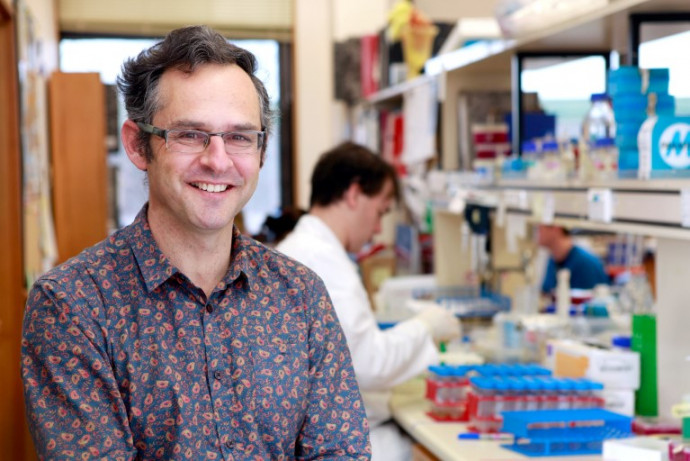Tony Merriman

2018: Professor Tony Merriman FRSNZ, University of Otago, has been awarded a James Cook Research Fellowship in Health Sciences for research entitled: 'The genetic causes of gout and related diseases in Aotearoa / New Zealand and worldwide'
As a result of modern lifestyles, metabolic diseases such as type 2 diabetes and gout are increasing in prevalence. In Aotearoa New Zealand, the risk of metabolic disease is two to four times higher in Māori and Pacific populations compared with that of other groups. Inherited genetic variation is a significant explanation as to why some people develop disease and others do not. Therefore, identifying and understanding the biological role of these genetic variants is critically important to prevent and treat metabolic disease in the coming decades.
Professor Tony Merriman’s research group specialises in applied genetic epidemiology. They study the role that genetic factors play in determining health and disease in populations, and how these genetic differences interact with environmental factors. In this James Cook Research Fellowship, Professor Merriman will employ genetic epidemiology to understand the molecular pathways that cause gout and related metabolic diseases in Aotearoa New Zealand, and worldwide.
Gout occurs in some people with increased levels of urate (hyperuricemia). It is a form of arthritis caused by build-up of urate crystals within joints and other tissues. These crystals trigger an immune response causing pain and swelling in affected joints and if untreated, can cause serious joint and kidney damage. The genetic control of hyperuricemia is becoming better understood, however, less is known about why only some people with hyperuricemia develop gout, while others don’t. To address this, Professor Merriman is leading an international consortium to scan the genome for genes controlling the progression from hyperuricemia to gout. Recently it has become clear that genetic variants found only in Pacific populations play a role in causing this metabolic disease, pinpointing biological pathways not previously identified. These variants exist as a result of the unique population history of Pacific peoples, and partly explain their increased risk of metabolic disease. Professor Merriman and collaborators will endeavour to identify and characterise these genetic variants, with a long term view to develop new public health and clinical interventions.
